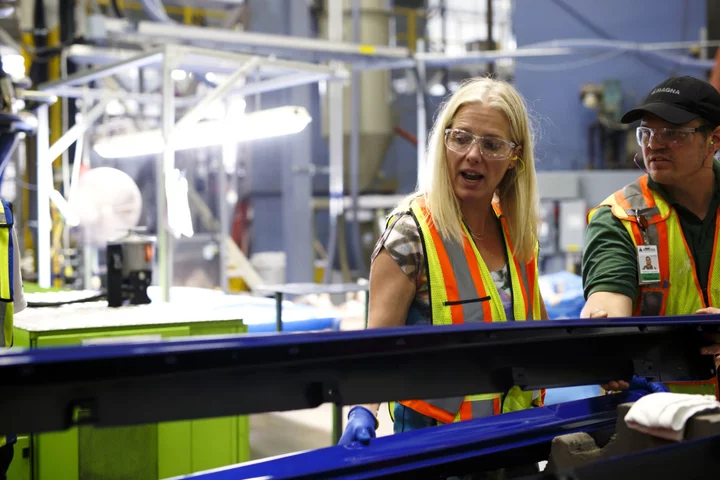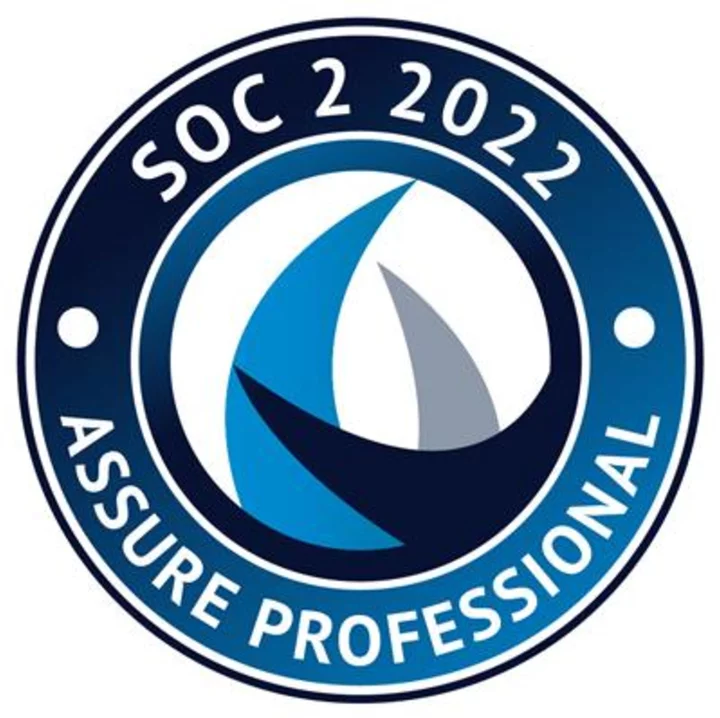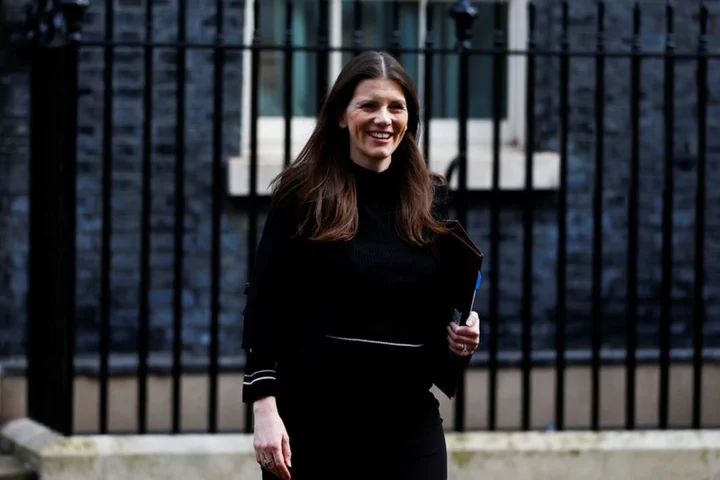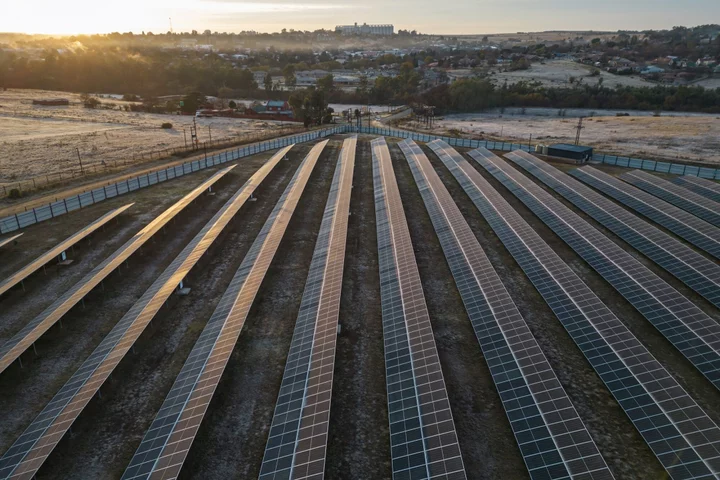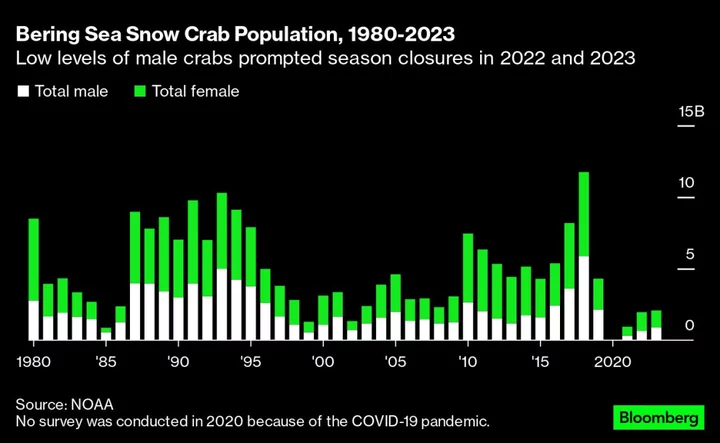(Bloomberg) --
Carbon taxes are an economist’s dream and a politician’s nightmare, as climate solutions go. Get them right and the emissions warming the planet decline. Get them wrong and you face grumpy voters and businesses. Taxes of any kind are after all a tough sell.
That’s why so few countries have managed to thread this needle despite putting in decades of efforts. Only 27 countries impose a significant tax on CO2 pollution but that hasn’t stopped some world leaders from trying.
At a summit on climate finance in Paris last month, French President Emmanuel Macron often brought up levying taxes globally to build a fund that would compensate the poorest countries for damages wrought by climate change. Surprisingly, the proposal did not create a divide between rich and poor countries.
“The discussion about carbon tax is a must have,” said Kenyan President William Ruto. “We do not want the North to pay for the South. We want all of us to pay.”
Even though a little over two dozen countries impose a carbon tax, there are at least 30 carbon-pricing programs underway at sub-national levels where local authorities are trying to find the right recipe for taxing one of the biggest contributors to global warming. These local programs can become the test beds for national policies as governments race to find solutions amid record-shattering temperatures across the planet.Read More: US, China Seek Thaw on Climate as World Bakes Under Extreme HeatOne recent example of that successful transition and scaling up is Canada — one of the few G7 nations to with a carbon tax.It started with the province of Alberta, which adopted the first such state-level policy in 2007. After some iterations in other provinces, Canada in 2018, under Prime Minister Justin Trudeau, introduced a broad-based price on carbon pollution. It started out modestly at C$20 ($15.2) per ton of emissions and is set to rise to C$170 by 2030. Trudeau defended it and went on to win re-elections in 2019 and 2021.
Catherine McKenna — the minister for environment who was tasked with deploying carbon-pricing nationally — joined the Zero podcast to share lessons that could help other countries in replicating this. A lot of it came down to the language of how the policy was described, she said:
If you start off looking at polling, the polling is terrible. If you say, “do you want a carbon tax?” Terrible, terrible, terrible. What about carbon pricing? A little bit better. What about putting a price on pollution? Better. No longer free to pollute? Best.
Canada is the second-largest country by area and many of its provinces have very different economic drivers. Some states are large fossil-fuel producers, while others are more service-oriented economies. McKenna knew from the start that for any national policy to stick, it will have to be respectful of that diversity.
That’s why Trudeau’s administration asked each province to come up with a carbon-pricing scheme that it thinks will work locally. If a province had none of its own, the federal government said it was going to implement a carbon pricing of some kind.
Listen to the full conversation with McKenna on the Zero podcast and subscribe on Apple, Google or Spotify for weekly episodes.
Despite heavy opposition from conservative politicians across the country, McKenna said the key to ensuring the policy’s success was in giving the money collected back to Canadian citizens. In policy parlance, that’s making the federal tax “revenue neutral.”
To sell the policy to Canadians, McKenna also got support from California’s Republican Governor Arnold Schwarzenegger:
I was trying to get anyone who didn't look like an environmentalist, because my problem wasn't with people who believed environmentalists. My problem was people didn't believe in environmentalism and didn’t want anyone them telling them what they needed to do. So I got Arnie, Arnold Schwarzenegger, who put a price on pollution in California, and it was bipartisan. I was trying to reach folks who liked The Terminator or it was quite cheesy, but I was like, “we need to terminate climate change!”
Beyond the messaging, McKenna knew that the policy nuts-and-bolts had to work well too. And that can get quite complex. For example, the Canadian government had to create a separate carbon pricing system for heavy industries, such as steel, to ensure that they don’t get taxed in a way that makes their products uncompetitive globally against steelmakers from countries that do not impose a carbon tax.
Despite its adoption, critics say that Canada’s carbon tax is yet to drive down its emissions at the pace needed. On that metric it is among the worst performers in G-7 nations, largely because of its oil and gas sector and rising population. But McKenna says that as the price increases, it should start to make an impact.
The road has been rough for McKenna who recalls being attacked by conservative politicians, receiving death threats and being given the moniker Climate Barbie. “Hard things are hard,” she said. “I did feel a heavy weight because I thought, gosh, if we don't land this, we're not going to be able to have a credible climate plan.”
Akshat Rathi writes the Zero newsletter, which examines the world’s race to cut emissions. You can email him with feedback. His book Climate Capitalism will be published later this year.

